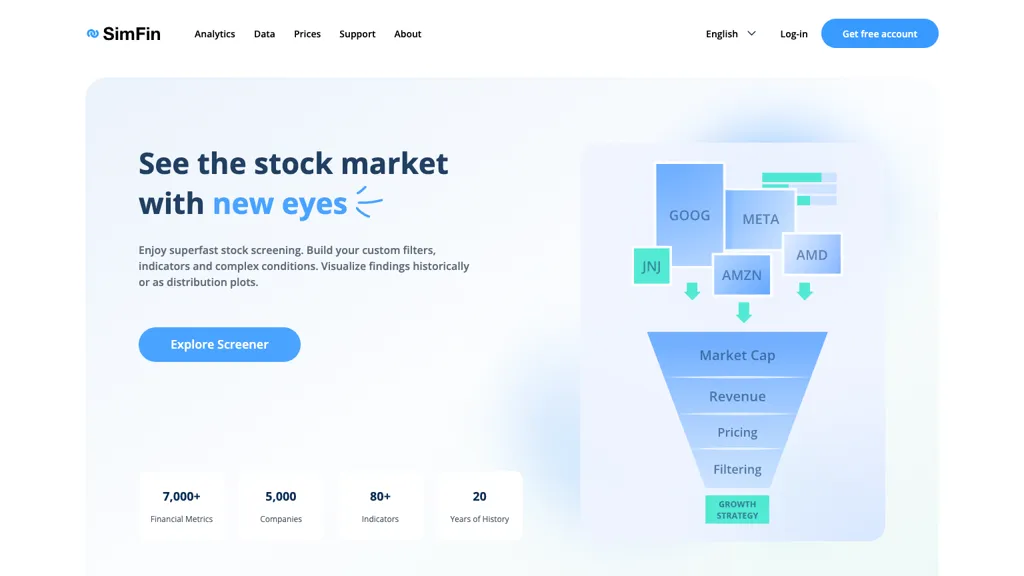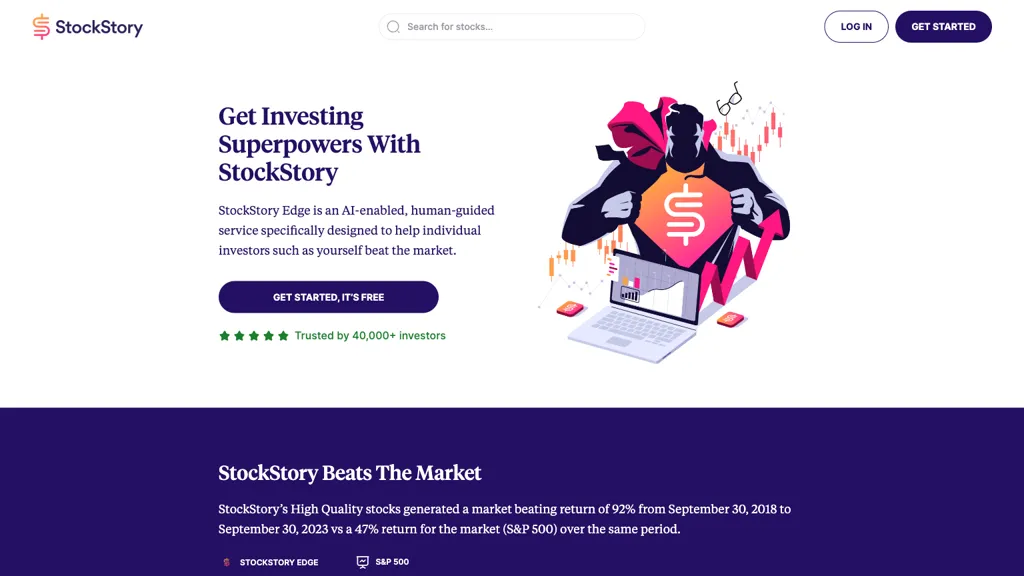20 Best Ideas For Choosing AI Stock Investing Analysis Websites
20 Best Ideas For Choosing AI Stock Investing Analysis Websites
Blog Article
Top 10 Tips For Evaluating The Cost And Cost Of Ai Analysis And Stock Prediction Platforms
The price and cost of AI-based stock predicting/analyzing trade platforms are important in order to avoid unforeseen costs or hidden fees. Pricing structures vary widely and it is crucial to be aware of what you're receiving for your price. Here are the 10 best tips for evaluating pricing and cost.
1. Understand the Pricing Model
Subscription-based : Determine if there's a monthly fee or an annual cost and what features are included in each.
Pay-per-use : Make sure that the platform's charges are based on the usage (e.g. trades, requests for data, or forecasts).
Freemium Model: Look to see if the platform offers a free version that offers the most basic features. The premium features are billed for.
2. Compare Pricing Tiers
Comparing the features included in each price level (e.g. basic professional, professional, and enterprise).
Scalability: Make sure your pricing levels are in line with your needs, regardless of whether you're an individual trader or professional.
Upgrade flexibility: See if you can easily upgrade or downgrade your plan when your needs alter.
3. Evaluate Hidden Costs
Data fees - Check if the platform charges an additional cost for access to the most valuable information (e.g. data in real-time or advanced analytics).
Brokerage charges - Check to see if any extra costs are charged by the platform to trade execution, or integration with brokers.
API usage: Evaluate whether API access costs are higher or if API usage is very frequent.
4. Assess Free Trials and Demos
Trial period. Check out platforms that offer the option of a demo or trial so that you can test their features out before committing.
Trial limitations: Determine if you can use all features in the trial or just one or a few.
No-commitment option If you do not like the platform, you can end the subscription at no cost.
5. Look for promotions and discounts. deals
Discounts for annual plans: Find out if you can get discounts on the annual plan compared with monthly plans.
Referral programs: Check if the platform provides discounts or credits for referring users.
Pricing for institutions In the event that you are part of an organization which is larger, inquire about bulk pricing or institutional pricing.
6. How do you assess return on investment (ROI).
Cost in relation to. value: Consider whether the capabilities and features of the platform are worth the price. Do you save time or make better choices when trading?
Performance track record Check out the platform's rate of success or user feedback to get an idea of the ROI potential.
Costs of other platforms: compared the costs of the platform to the potential cost of not making use of it (e.g. not utilizing opportunities, time spent on manual analysis).
Review Refund and Cancellation Policies
You are able to cancel your subscription at any time, without paying any fees or penalties.
Make sure to check if there's an option to refund subscriptions you haven't utilized.
Auto-renewal : Check whether your subscription has been automatically renewed by the platform. If so, discover how to cancel it.
8. Review Transparency of Pricing
Clear pricing page: Ensure that the platform offers transparent and clear pricing page, with no extra charges.
Customer Support Contact support at customer service to discuss any pricing ambiguities or additional costs.
Contract Terms: Review the conditions of service to determine if there are any long-term agreements or penalties.
9. Compare to Competitors
Comparison of features Comparison of pricing and features offered by the platform against the competition to ensure that you're getting the most value for money.
User feedback: Find out what others think of the platform and determine if it is worth the cost.
Market positioning: Find out if it is priced as an expensive, mid-tier or a budget choice and if it aligns with your expectations.
10. Consider the Long-Term Costs
Price increases Look through the history of the platform to determine how often it has increased prices.
Plans that include additional features Decide if you're in need of an upgrade or if the latest features are available within your existing plan.
Cost for scaling The platform must be priced appropriately in the event that your trading or data requirements grow.
Bonus Tips
Trial multiple platforms: Test multiple platforms during trial periods for free to evaluate their performance and value.
Negotiate pricing: If you're a large-volume user or part of a larger institution, ask about special pricing or discounts.
There are a variety of platforms offering educational resources and tools free.
These tips will aid you in evaluating the price and expenses of AI stock-predicting/analyzing trading platforms. It is possible to choose one that suits your budget and provides the features you require. A balanced platform can give you the most efficient of both cost and performance. Check out the top rated weblink for blog tips including best ai stock trading bot free, best ai trading app, using ai to trade stocks, best ai trading app, trading ai, ai investment app, best ai for trading, ai trading, using ai to trade stocks, ai stock market and more.
Top 10 Tips For Assessing The Reputation, Reviews And Reviews Of Ai Stock Trading Platforms
To ensure the reliability, trustworthiness, effectiveness and dependability, it's important to review the reviews and reputation of AI-driven stock trading and prediction platforms. Here are the top 10 ways to assess their reputation and reviews:
1. Check Independent Review Platforms
You can find reviews on reputable platforms such as G2, copyright or Capterra.
Why: Independent platforms can provide real feedback from users.
2. Analyze testimonials from users and cases studies
Tips: You can read testimonials from users and case studies on the platform's site or other third-party sites.
Why? These reports provide information on real-world performance and also the satisfaction of users.
3. Review Expert Opinions and Industry Recognition
Tip: Find out whether any industry experts, analysts, or publications that are reputable have reviewed the platform or made a recommendation.
What's the reason? Expert endorsements give credibility to the platform.
4. Social Media Sentiment
Tips - Check social media platforms such as Twitter, LinkedIn or Reddit for comments and sentiments from users.
Social media allow you to observe the opinions and views of users as well as trends.
5. Verify Regulatory Compliance
Tips: Ensure that the platform complies not only with privacy laws but also with financial regulations.
Why: Compliance ensures that the platform functions legally and with integrity.
6. Find out if performance metrics are transparent. measures
Tip : Check if the platform is transparent in its performance metrics.
Transparency builds trust among users and lets them evaluate the effectiveness of a system.
7. Test the quality of customer support.
Tips: Read reviews from customers about the platform and their effectiveness in providing assistance.
The reason: A reliable support system is critical for resolving issues and ensuring a positive user experience.
8. Red Flags should be checked in reviews
Tip: Pay attention to complaints that are recurrent like poor service, hidden charges or lack of new features.
A pattern of consistently negative feedback is a sign that there may be an issue in the system.
9. Study user engagement and community
Tip - Check to see whether there's an active community of users using the platform (e.g. Discord groups, forums) and whether they communicate with their users on a regular basis.
Why? A active community is a sign of customer satisfaction and ongoing assistance.
10. Check out the track record of the business
Explore the past performance of the company, its leadership, as well as the performance of the financial technology sector.
Why: A track record of reliability and expertise can increase the trust in a platform.
Compare Multiple Platforms
Compare the reviews and reputation of multiple platforms in order to determine which platform is most suitable for your needs.
If you follow these guidelines, you can thoroughly assess the credibility and reviews of AI trading and stock prediction platforms. Make sure you select an efficient and reliable solution. View the top rated best ai stock prediction blog for blog examples including ai trading tool, ai copyright signals, can ai predict stock market, best ai stock prediction, best stock prediction website, ai options, free ai stock picker, ai stock investing, best ai stocks to buy now, how to use ai for stock trading and more.